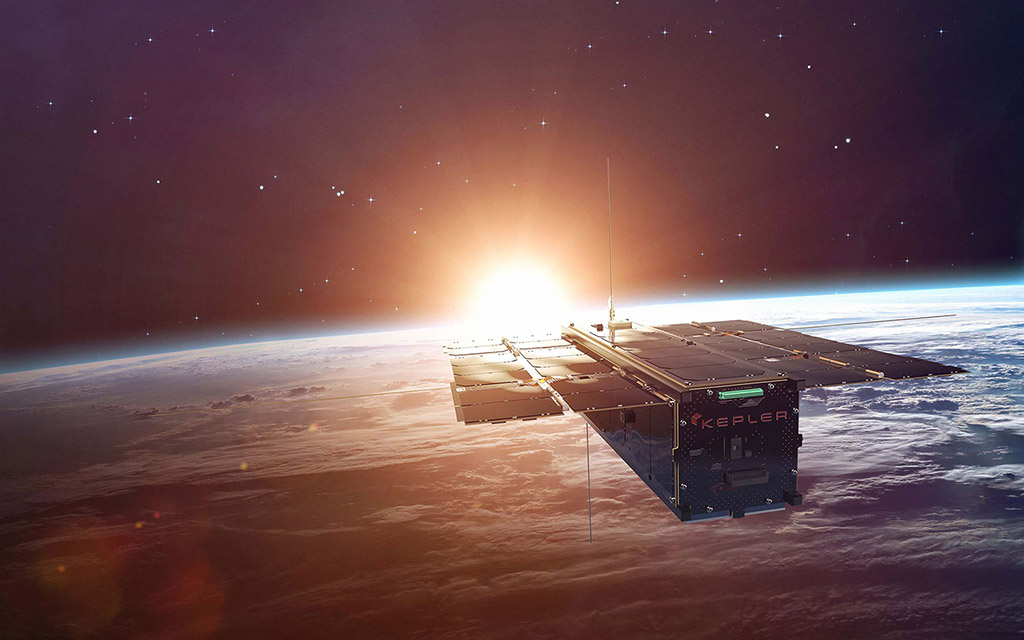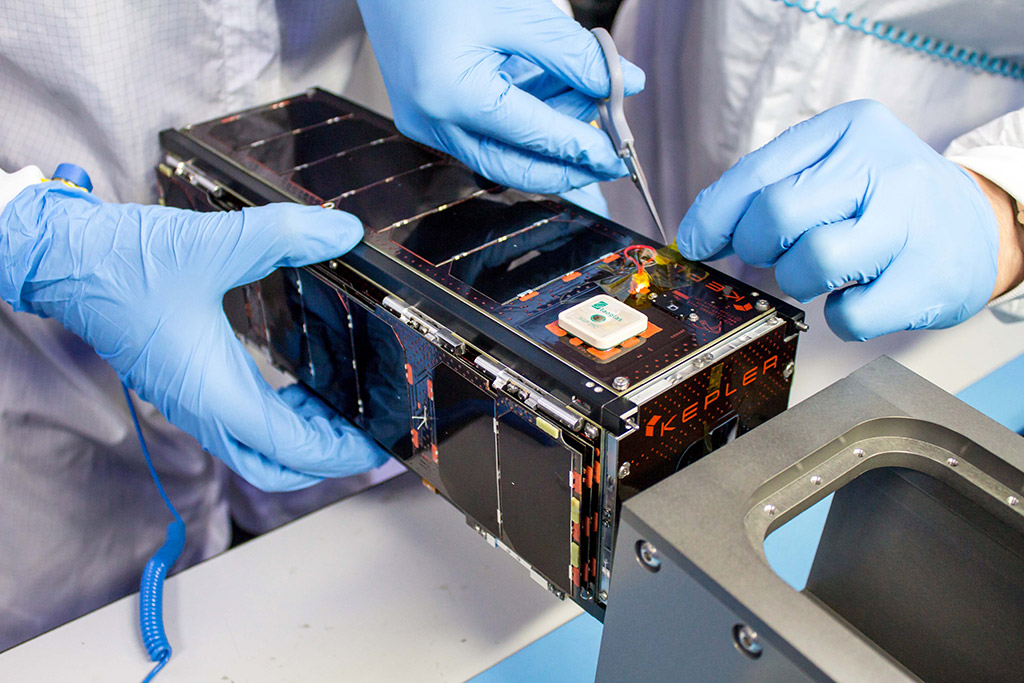Kepler’s satellites require a fraction of the power of conventional devices and can be launched for $250,000, compared to as much as $500 million for a typical satellite.
So far, the company has sent two into orbit, but aims to launch 140, to allow clients to send and receive data from fixed locations or moving vessels anywhere in the world. Kepler sees an opportunity to help companies track assets such as railcars and shipping containers.

The company got its start in 2015 through Start@UTIAS, a Faculty of Applied Science and Engineering incubator created with the help of a $1-million gift from Francis Shen (MASc 1983).
The initial support was critical for Kepler to develop its core intellectual property, which includes the specialized radio equipment the satellites rely on, says Jeffrey Osborne, vice-president for strategy and business development.
While the company’s current focus is using satellites to cheaply connect things here on Earth, Osborne says the long-term vision is to enable connections between space-based vehicles.
Recent Posts
People Worry That AI Will Replace Workers. But It Could Make Some More Productive
These scholars say artificial intelligence could help reduce income inequality
A Sentinel for Global Health
AI is promising a better – and faster – way to monitor the world for emerging medical threats
The Age of Deception
AI is generating a disinformation arms race. The window to stop it may be closing





